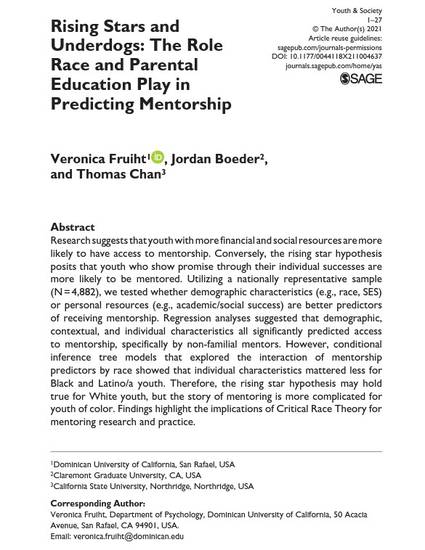
Research suggests that youth with more financial and social resources are more likely to have access to mentorship. Conversely, the rising star hypothesis posits that youth who show promise through their individual successes are more likely to be mentored. Utilizing a nationally representative sample (N = 4,882), we tested whether demographic characteristics (e.g., race, SES) or personal resources (e.g., academic/social success) are better predictors of receiving mentorship. Regression analyses suggested that demographic, contextual, and individual characteristics all significantly predicted access to mentorship, specifically by non-familial mentors. However, conditional inference tree models that explored the interaction of mentorship predictors by race showed that individual characteristics mattered less for Black and Latino/a youth. Therefore, the rising star hypothesis may hold true for White youth, but the story of mentoring is more complicated for youth of color. Findings highlight the implications of Critical Race Theory for mentoring research and practice.
© The Author(s) 2021
Available at: http://works.bepress.com/veronica-fruiht/17/
